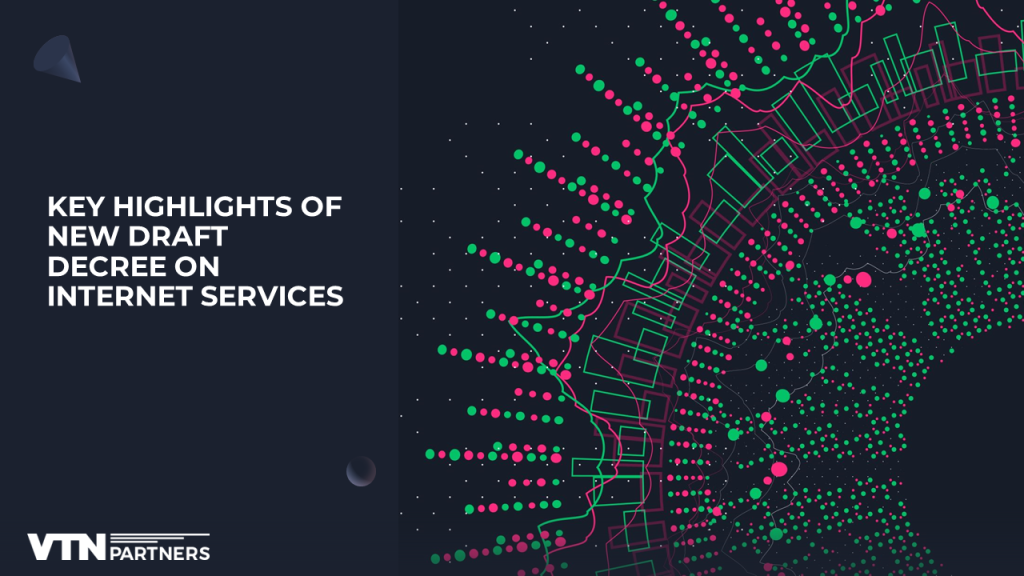This post is written by Nguyen Kien Cuong and edited by Nguyen Thanh Nghiep
On July 17, 2023, the Ministry of Information and Communication (“MIC”) issued a new draft decree (“Draft Decree”) to replace Decree No. 72/2013/ND-CP for public consultation. The Draft Decree consists of six chapters, 87 articles, and an appendix of 56 forms. In general, the Draft Decree aims to clarify and supplement regulations for verifying social networks’ user accounts, licensing conditions for providing online video game services, and the protection of national security and users’ rights. The key highlights of the Draft Decree are as follows:
Social network services classification
The Draft Decree has provided a clear classification of social network services. Specifically, social networks are divided into both onshore and offshore services. Onshore social network services are those provided by organizations or enterprises with Vietnamese legal personhood. Offshore social network services are those provided by foreign organizations or individuals on a cross-border basis (Article 27.7(a) of the Draft Decree).
Besides, onshore and offshore social network service providers are required to provide annual reports or extraordinary reports upon request to MIC per stipulated forms.
Cross-border information provision
Offshore organizations and individuals that provide cross-border information rent space in data centers in Vietnam or receive a total monthly visit from Vietnam a threshold of 100,000 or more for six consecutive months are now required to satisfy stricter obligations prescribed under Article 26.3 of the Draft Decree.
The purpose of considering stricter obligations is for social network providers and app stores to proactively monitor user-generated content on their platforms and delete inappropriate information, services, and applications that violate domestic law.
Content search and scanning engine
A new provision in the Draft Decree provides that both onshore and offshore social networks must provide a content search and scanning engine to allow for proactive monitoring of user-generated content as requested by MIC.
User verification
The Draft Decree provides guidance on verifying users’ information when opening digital accounts and providing users’ information to cybersecurity forces upon request. In particular, both onshore and offshore social network service providers are required to store the personal information of Vietnamese users. Moreover, users’ information must be provided to the competent authorities upon written request to investigate cybersecurity violations.
This supplement will create synchronous user verification in either onshore or offshore social network services.
Online video game services
The Draft Decree emphasizes a specific classification of online games regarding player age and the sanctions in case the online game providers violate the regulations on online games.
Besides, the Draft Decree requires cross-border service providers that provide online games services to set up a local entity in Vietnam to provide the services in accordance with the Draft Decree (including the obligation to obtain relevant licenses and permits). Thus, the cross-border provision of online games without local entities in Vietnam is still prohibited.
National security protection
The Draft Decree focuses on protecting national security, particularly on handling requests from MIC for removing illegal content that affects national security. It also emphasizes the importance of blocking social media accounts and groups that violate national security.
These amended provisions are considered to enhance security protection in general and to handle inappropriate content affecting national security on the Internet in particular.
Protection of user rights
The Draft Decree provides regulations for user rights, including publicizing distribution methods and allowing users to consider using content on social network platforms, handling user complaints, and protecting children’s rights.
For instance, the Draft Decree only allows individuals above 16 years of age to register accounts with service providers. Thus, for individuals under 16 years of age, the accounts must be registered with the information of a parent or legal guardian.








